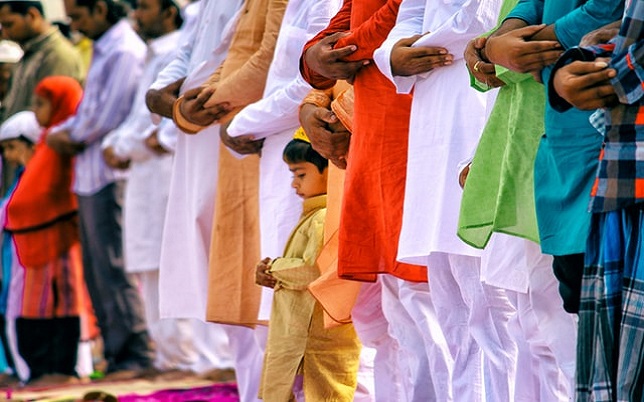Pillars of Islam are those essentials and fundamentals of Islam which are absolutely necessary to be accepted and followed by a person to called a Muslim. The most important obligation upon a Muslim is to learn about those things in which he has to believe and those which he has to practice.
These tenets or pillars of Islam are fundamental in order for a person to qualify as a Muslim. They are commonly shared by Muslims throughout the world and are as follows:
1. Imaan (Faith)
2. Salah or Namaz (Prayer)
3. Sawm (Fasting)
4. Zakat (Poor Due)
5. Hajj (Pilgrimage)
If anyone denies the obligatoriness of any of these pillars, he ceases to be a Muslim.
In this post we are going to learn about the second pillar of Islam known as Salah or Namaz which is an obligation upon a Muslim to offer 5 prayers daily.
Related: Importance of Allah in Islam and a Muslim’s life
Second Pillar of Islam – Salah (Namaz)
Of all forms of worship in Islam, Salah, prayers offered five times a day, is of foremost importance.
It is a fundamental pillar of Islam and a practice distinguishing Muslims from followers of other religions. In view of its importance it is considered as a line of demarcation between Islam and all other unlslamic ways of life.
Allah commands the believers in Quran:

“(Set your face to the Faith) turning totally towards Him, and fear Him, and establish Salāh, and do not be among those who associate partners with Allah”. [Quran 30: 31]
The Prophet of Allah, blessings and peace be upon him, also emphasizes the importance of Salah in the following words:
Renouncing Salah (Prayer) is ( a line of demarcation) between (Allah’s) slave and infidelity.
In another statement of Prophet Muhammad the same theme has been underscored in these words:
“The line of demarcation between Faith and infidelity is renouncement of Salah (Prayer)“.
Salah safeguards faith and leads to ultimate salvation. Allah has mentioned it as a basic condition for His guidance and a sign of piety on the part of a Muslim.
Salah is obligatory on all Muslims, free or slave, healthy or sick, resident or traveller, and has to be offered in all conditions.
If a Muslim is unable to stand up. he should offer his prayers sitting. If unable to sit, he is allowed to pray in a reclining or prostrating posture. If even this is not possible for him, he can pray by gestures. But he must pray.
Muslims are required to pray even in the battlefield (which is done in a specific way and is known as Prayer of Fear (Salatul Khawf).
They also pray while undertaking a journey, although for their convenience in the journey all four- Rak’ah obligatory Salah are reduced to two-Rak’ah Salah.
Salah is so important and fundamental that even a Prophet is not exempted from it. It is to the believer what water is to the fish. It accords shelter and peace to the believer.
If offered with due sincerity, it never lets a believer stoop down to the worship of a false god, accept a lifestyle of ignorance, or adopt any immoral behaviour. Allah states in the Quran:

Recite, [O Muhammad], what has been revealed to you of the Book and establish prayer. Indeed, prayer prohibits immorality and wrongdoing, and the remembrance of Allah is greater. And Allah knows that which you do. [Quran 29: 45]
Salah is offered five times a day and has to be said at specified times as ordained by Allah. The number of Rak ‘ahs performed in Salah is also fixed and has to be observed without any alteration.
The following posts explain about the various aspects related to Salah. Interested reader can go through them for further information on second pillar of Islam.

